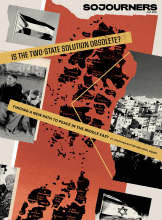Shannon Dingle is a disabled activist, sex trafficking survivor, and author of recently released Living Brave. Her family’s grief over the sudden death of her husband, Lee, in July 2019 resonated with many worldwide. She discussed Living Brave with Liuan Huska, author of Hurting Yet Whole: Reconciling Body and Spirit in Chronic Pain and Illness.
LIUAN HUSKA: IT’S been almost two years since a rogue wave killed your husband, Lee, on a family beach vacation. You wrote about his death soon after it happened.
Shannon Dingle: Looking back on some of my writing, I’m so damn proud of my ability to capture where I was then. It is a record for me and my kids as much as for anyone else. I wanted to tell the story and protect how it was told.
Did the sexual abuse you experienced as a child influence how you wanted to tell your grief story? My brutal and raw honesty definitely comes from a place where I had horrific things happening that I couldn’t tell. I know how freeing it can be to put words to things. I write from a place where I know I’m the authority on what my life has been and what happened.
Read the Full Article

